Logical Reasoning Reading Comprehension Worksheets for Ages 6-7
7 filtered results
-
From - To
Enhance your child's critical thinking skills with our engaging Logical Reasoning Reading Comprehension Worksheets designed for ages 6-7. These worksheets offer a fun and interactive way for young learners to improve their reading comprehension while developing logical reasoning abilities. Each worksheet includes age-appropriate texts paired with questions that encourage kids to analyze information, draw conclusions, and make connections. Perfect for both classroom and home learning, our resources provide an excellent opportunity to nurture a love for reading and critical thinking in early elementary students. Download now to help your child thrive in their learning journey!
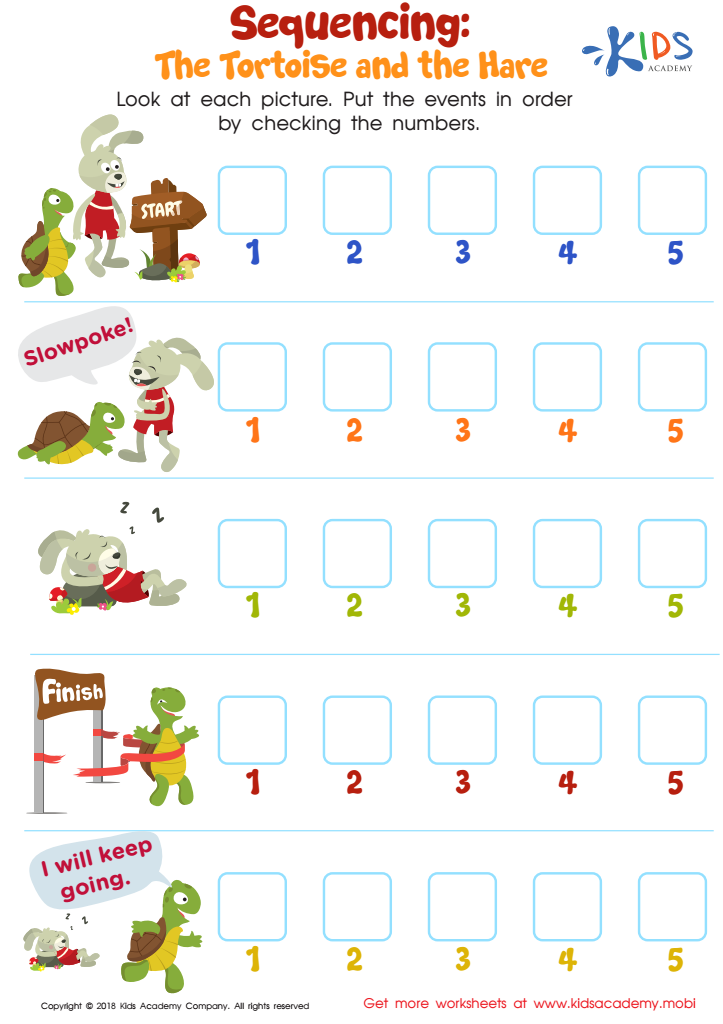

Sequencing: The Tortoise and the Hare Worksheet
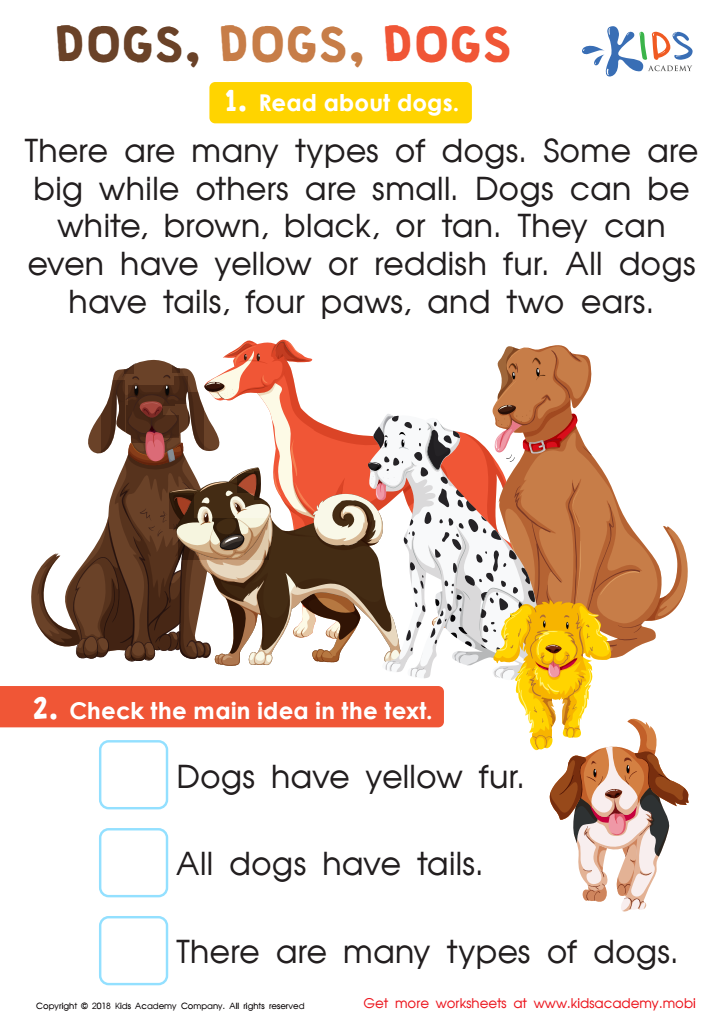

Dogs, Dogs Worksheet
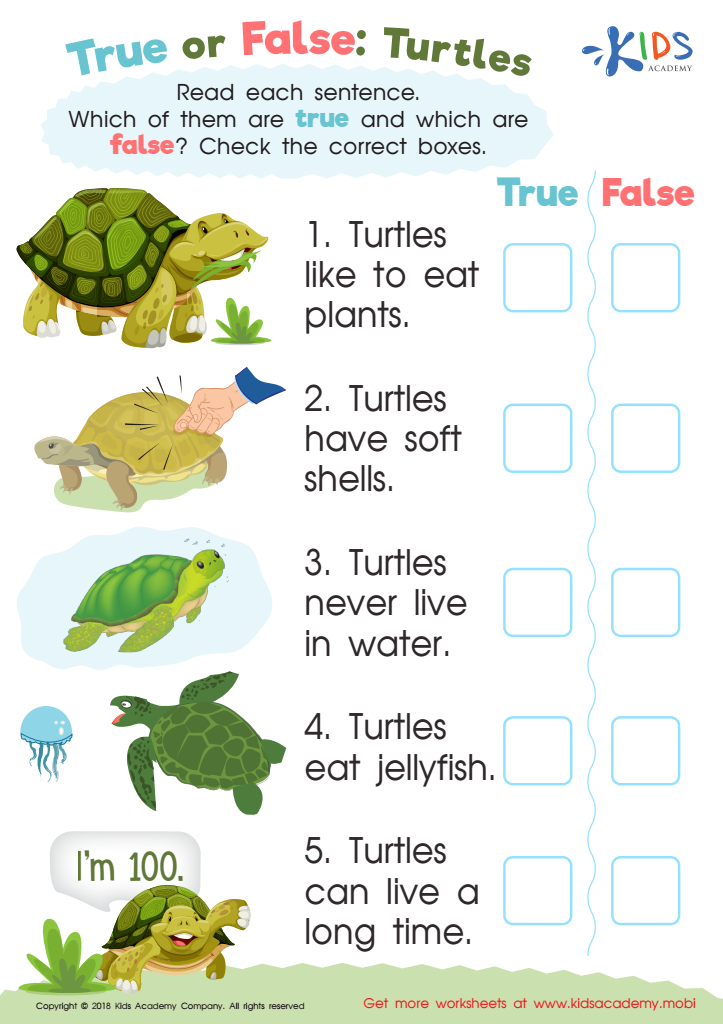

True or False: Turtles Worksheet
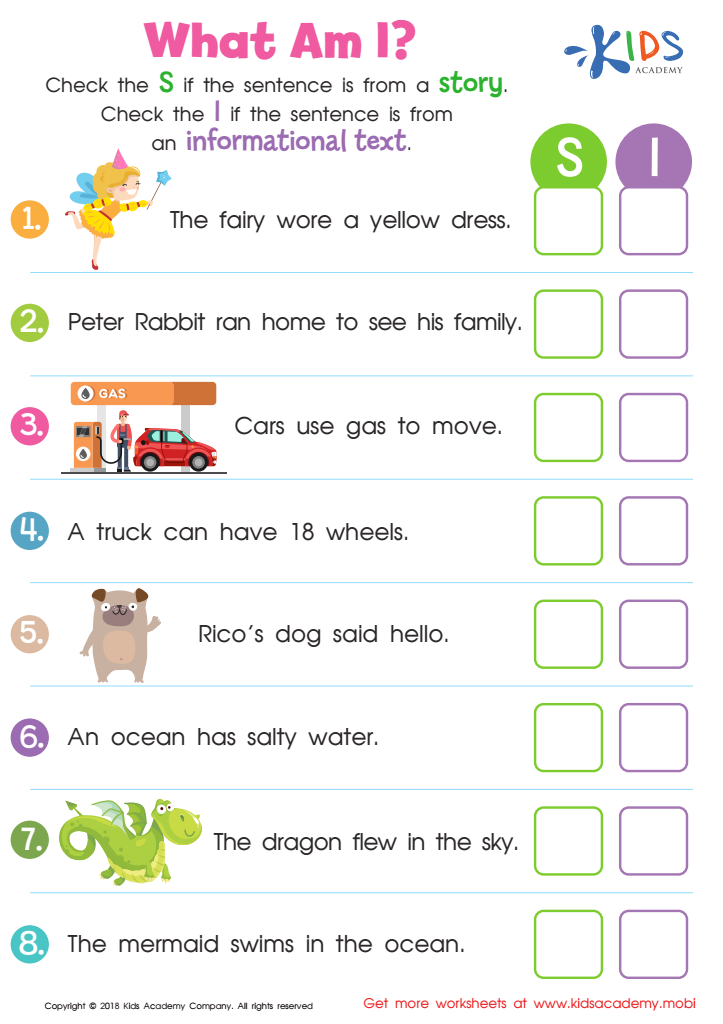

What Am I? Worksheet
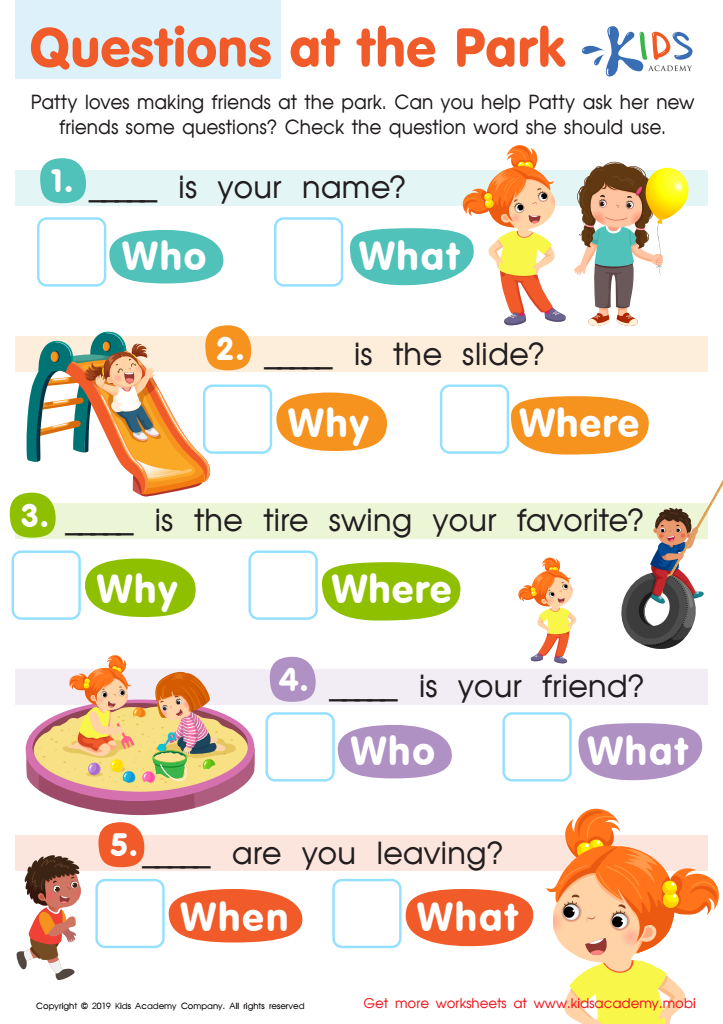

Questions at the Park Worksheet
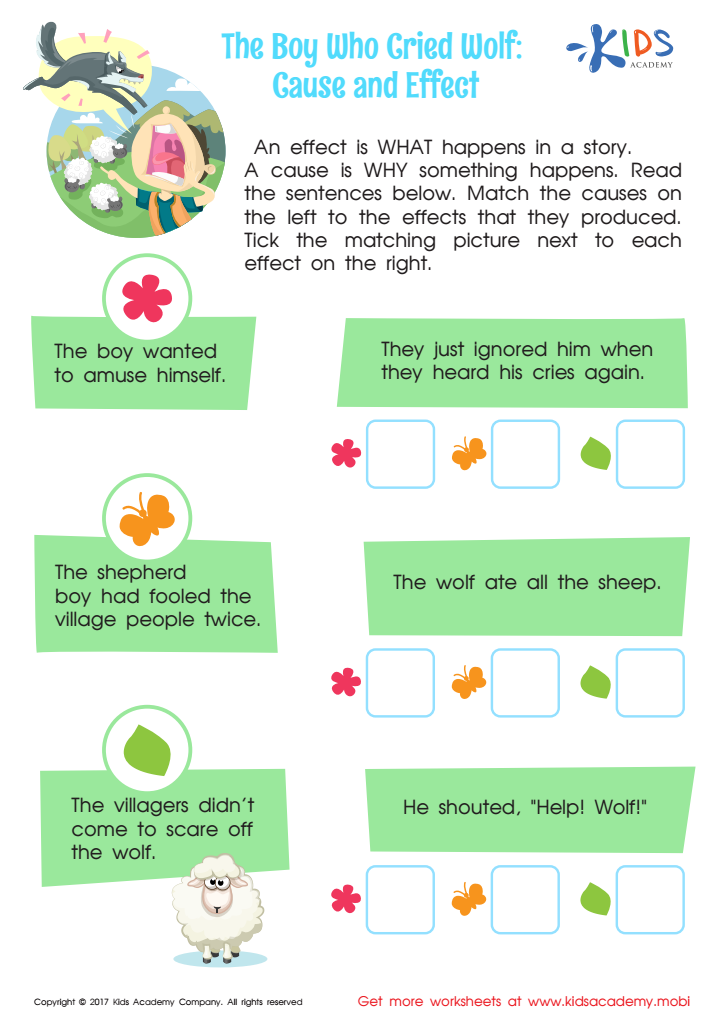

The Boy Who Cried Wolf: Cause and Effect Worksheet
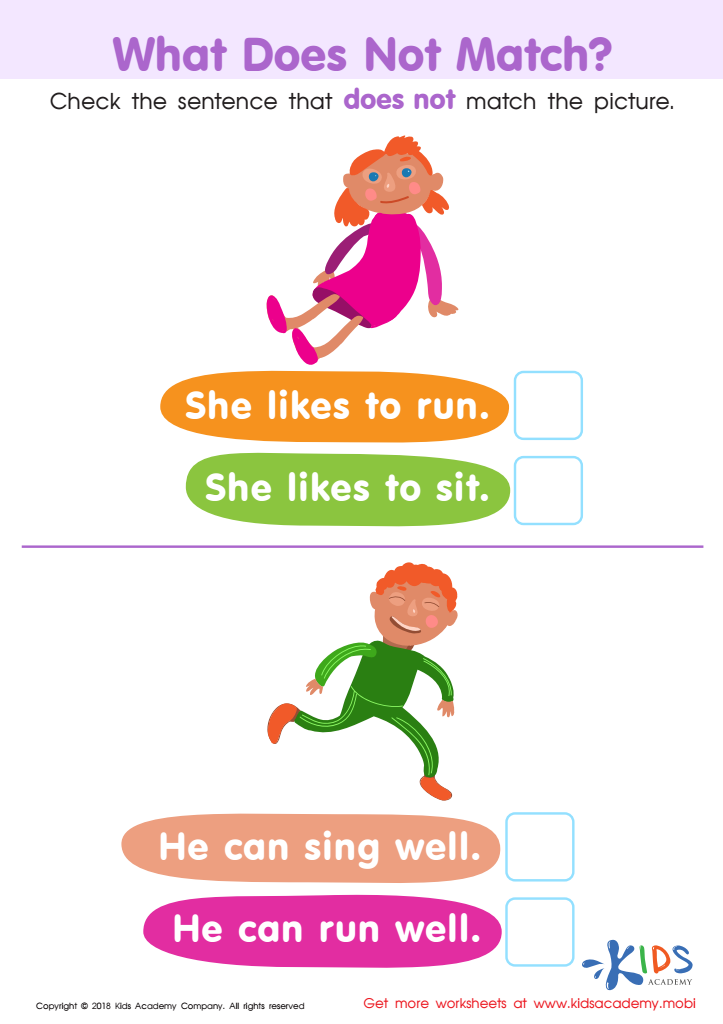

What Does Not Match? Worksheet
Logical reasoning is a vital skill for children aged 6-7, as it lays the foundation for critical thinking and overall academic success. At this age, children are developing their reading comprehension skills, which are essential for understanding and interpreting information. By focusing on logical reasoning, parents and teachers can help children make connections between ideas, identify patterns, and draw conclusions based on the text they read.
Encouraging logical reasoning in reading comprehension fosters independent thinking and problem-solving abilities. It allows children to not only recall facts but also analyze the information and apply it to new situations. This skill is crucial as they progress through school, where advanced literacy tasks will demand higher-order thinking.
Additionally, logical reasoning reading comprehension can enhance a child's confidence in their abilities. As they learn to navigate challenges in texts, they will feel more empowered to engage with complex materials as they grow older.
By prioritizing logical reasoning skills at this early stage, parents and teachers can nurture well-rounded individuals who are equipped to tackle both academic challenges and real-world problems throughout their lives. Ultimately, investing in these skills empowers children to become lifelong learners.
 Assign to My Students
Assign to My Students















